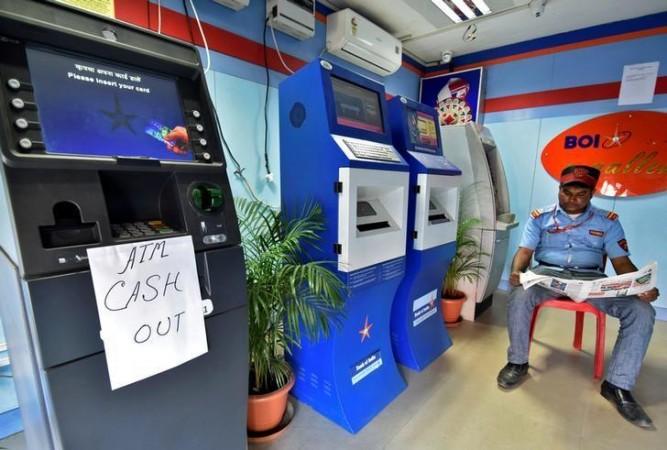
Customers will take a hit as the automated teller machine (ATM) operators have demanded an increase in the interchange fee for ATM transactions following recent stringent guidelines by the central bank.
Interchange fee is what banks pay each other for the use of other banks' ATMs by their customers.
Currently, all banks charge a fee of Rs 15 for each cash and Rs 5 for all non-cash transactions from each other for use of their ATMs by other banks' customers -- which is recovered from the (user) customers -- beyond the five minimum free transactions.
The Confederation of ATM Industry (CATMi) on Wednesday asked banks and the regulator to consider a higher interchange rate as the Reserve Bank of India (RBI) directive is expected to push up their costs.
The CATMi has demanded that this should go up by at least Rs 3-5 per transaction to enable the ATM operators to recover their costs.
The central bank has asked banks to implement certain minimum standards in their arrangements with the service providers for cash management-related activities by July.
These include a minimum fleet size of 300 specifically fabricated cash vans (vehicles), a driver, two custodians and at least two gunmen for security, each vehicle must be GPS-enabled and monitored live with geo-fencing mapping with additional indication of the nearest police station during any emergency.
Another RBI circular said banks should consider using lockable cassettes in their ATMs which shall be swapped at the time of cash replenishment.
According to the service providers, the swap of cassettes would require a massive investment as additional cassettes will have to be made available for all ATMs.
ATM operators have been lobbying for a higher interchange fee since the November 2016 demonetization of high-value banknotes as security charges and recalibration of machines due to the issue of new currency notes led to additional costs for all banks.
Nearly 50 percent of the ATMs are managed on a monthly fee and the remaining are based on transactions.








